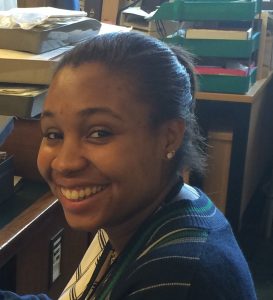My time as an intern with the Partnership
The role of mediator is an important one. This has become clear to me during my three months with the Partnership and the Centre for Science and Policy (CSaP). They have the difficult task of bringing together two parties with different ideas, experiences and skills.
In the world of policy, these mediators also have to go beyond this to ensure both parties work together in mutual understanding. Luckily with the Partnership, they do want to work together and therefore I guess it isn’t as cutthroat as I’m making it out to be. Reflecting on my last three months I have come to a few realisations.
There is important research being conducted out there that is not to do with climate change.
As an environmental PhD student, I am surrounded by researchers studying the natural world with relevance to climate change. You can easily get lost in your own little bubble and start to believe that is all that is important. Working with the Partnership has opened my eyes to the interesting and important research occurring in national security. It is an extremely fascinating area and one which I would never have experienced or thought about had I not had this opportunity.
As an academic you can’t just rely on your research to do the talking.
If you believe your research will provide impact you have to actively go out and sell it. Stakeholders see and hear a lot of ideas every day. The research just isn’t enough; you have to play the role of the salesman if you want to take your research further. However, how you talk about your research is just as important. There is no point using scientific jargon when speaking with someone who is not in your field and will not understand.
As early career researchers we are both trained and encouraged to publish our work in journals, often ones that only other academics will read. We have to make more of a conscious effort to engage with and promote our research to individuals outside the academic world.
You are a product. It isn’t just about promoting your research, it’s also about promoting yourself.
If people like you they are more likely to work with you. That isn’t saying you should compromise your values for anybody else, but it is about appreciating others viewpoints and opinions and actively seeking out like-minded people.
It is all about networking.
As part of my internship, one of my tasks was to create a strategic document on the role of networks within the Partnership. As a result, I have come to realise how important networking is – it is even being used as a criteria for success in research evaluations. Academics and stakeholders are crying out for opportunities for engaged discussion and collaboration.
…anything which provides as much visibility and opportunity to get ideas out as easily as possible is a good idea in my book.
Andrew Nicholson, Centre of Defence Enterprise at DSTL on the role of networks to the Partnership.
Overall I have had an amazing experience; I have learnt so much and met so many interesting people, not to mention I got to live in the wonderful city of Cambridge. If there are any PhD students reading this, I highly recommend taking time off to do an internship. Even if it isn’t an area you see yourself working in longterm, it will definitely give you a fresh perspective on your own research. I know I will be heading back re-invigorated to do more with my own work.
Speaking of going back to my PhD, it’s time to check in on my seaweeds. Here’s a short video for you showing how my seaweeds are collected in Falmouth.
If you would like to know more about my time with the Partnership or CSaP, or you are interested in coralline algae responses to climate change, please feel free to contact me via email at l.melbourne@bristol.ac.uk.
Leanne Melbourne was working as an intern for the Partnership for Conflict, Crime and Security Research. She now is completing her PhD at the University of Bristol on the impact of climate change on coralline algae.



